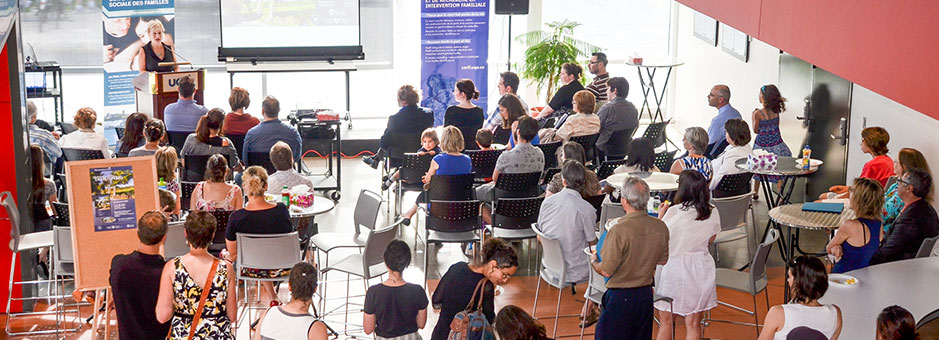Every year, over 87 000 children are born in Quebec (ISQ, 2009). Research on the transition to the role of father have evolved so that, recently, studies indicate that the experience of paternity can be difficult for some fathers. According to Pinheiro & al (2006), up to 16% of fathers experience slight to severe depression lasting up to two years after the birth of a child. The depression seems to be aggravated if the mother also has symptoms of depression (Bielawska-Batorowicz & Kossakowska-Petrycka, 2006). Finally, fathers with obsessive thoughts during the pregnancy are at greater risk of developing obsessions and compulsions after the birth of the child (Abramowitz & al, 2007). Despite the fact that few studies have been done on this theme, changes in paternal mental health during the postnatal period are recognized as having negative consequences on conjugal satisfaction (Bielawska-Batorowicz & Kossakowska-Petrycka, 2006) and on the emotional and behavioural development of children aged three to five years (Ramchandani & al, 2005).
The Groupe de recherche sur la santé mentale chez les hommes en période postnatale et sur les pratiques professionnelles en soins de première ligne à leur égard (Research Group on Men’s Mental Health during the Postnatal Period and Primary Care Practices) is funded by the Fonds de recherche en santé du Québec (FRSQ). The Group’s members aim to advance knowledge on male mental health during the postnatal period, on the related social and cultural determinants, and on the ways that men’s mental health is cared for. The Group also hopes to develop and evaluate health care practices for such fathers on the psychosocial, educational and community levels.
Sources
Abramowitz, J.A., Nelson, C.A., Rygwall, R., Khandker, M. (2007). The cognitive mediation of obsessive-compulsive symptoms: A longitudinal study. Journal of Anxiety Disorders, 21,
Bielawska-Batorowicz, E., & Kossakowska-Petrycka, K. (2006). Depressive mood in men after the birth of their offspring in relation to a partner's depression, social support, fathers' personality and prenatal expectations. Journal of Reproductive & Infant Psychology 24(1), 21-29.
Institut de la statistique du Québec. (2008). Naissance et décès. http://www.stat.gouv.qc.ca/donstat/societe/demographie/naisn_deces/naissance/401.htm
Pinheiro, R. T., Magalhaes, P. V. S., Horta, B. L., Pinheiro, K. A. T., daSilva, R. A., & Pinto, R. H. (2006). Is paternal postpartum depression associated with maternal postpartum depression? Population-based study un Brazil. Acta Psychatric Scandinavia, 113, 203-232.
Ramchandani, P., Stein, A., Evans, J., & O'Connor, T. G. (2005). Paternal depression in the postnatal period and child development: a prospective population study. The Lancet, 365, 2201-2205.




